In 1850, French economist Claude-Frédéric Bastiat published his famous essay, “Ce qu’on voit et ce qu’on ne voit pas” or, “What is seen and what is unseen.” In it, he argues against the “bad economist” who looks only to the initial effect of actions taken, and not their further consequences.
Bastiat uses the example of a broken shop window. To repair the window, the shop owner has to hire a glass maker. Now the glass maker has money, and can use it to buy further things. Thus, the economy has improved, has it not?
But this only notes the seen, the money spent and glass maker employed, and not the unseen, what could have been bought with the money instead. A bad economist reasons from the seen and argues that we ought to break windows to stimulate the economy. The wise economist knows that breaking things makes people worse off.
That breaking windows is counterproductive is hardly surprising. Yet, in our working lives, many of us are exactly the bad economists Bastiat warned against. We focus on being visibly productive, often subtly undermining the unseen ability to do important work.
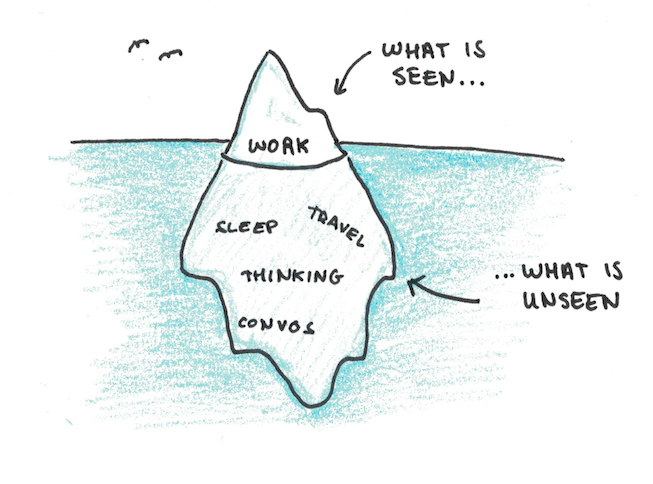
Consider the person who stays late at the office every night, to show everyone what a “team player” he is. Except, this causes him to sleep less which makes him sluggish. He misses time spent with colleagues, who would have recommended him for projects and promotions. He never has time to think, and thus fails to think of brilliant ideas that would propel him forward. Despite his drudgery, his lack of progress only convinces him that he has failed to work hard enough.
Today, I’d like to consider Bastiat’s question as it applies to our work. What are the unseen factors that influence our productivity so that something that looks lazy actually gets results?
1. Actually getting enough sleep.
Productivity enthusiasts fetishize waking up early. Waking up at 7am isn’t enough. You need to wake up at 6, 5 or even 4:30 in the morning.
We all vary in our natural sleeping set-point, so early-rising might be right for some. But for many others it’s forcing us into an unnatural rhythm that naturally leads to less sleep.
Sleeping is the quintessential example of a productive activity that looks lazy. Not only does sleep consolidate memory, enhance cognition and improve your mood, but its absence is disastrous. Failing to get sufficient sleep, many of us believe we’ve “adapted” but the truth is our cognitive performance continues to decline.
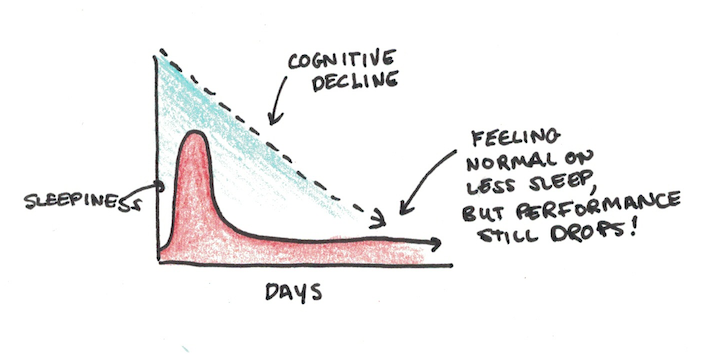
Sleeping well leads to working better.
2. Taking long walks just to think.
Another consequence of prioritizing the seen over the unseen in our work is that we devalue time spent just thinking. Since its not obvious to outsiders what we’re thinking about, it’s often the case that those staring off into space or “taking a break” are seen as slackers.
In truth, long walks just to think are one of the most productive things you can do. Albert Einstein, in dreaming up the ideas behind general relativity did much of his thinking in long walks. Had he been forced to constantly publish mediocre papers instead, to give the appearance of productivity, our entire understanding of the universe would be impoverished for it.
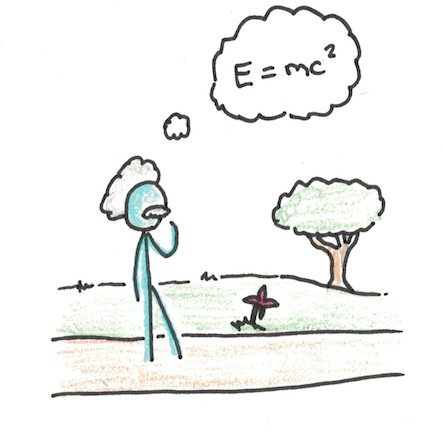
3. Chatting with colleagues about work.
Watercooler gossip is a tell-tale sign of slacking. Except when it isn’t.
In the Enigma of Reason, researchers Hugo Mercier and Dan Sperber, argue that humans did not evolve to reason well about things in isolation. Our faculties of deduction, logic and insight were developed to win arguments, not to determine the truth.
What this implies, however, is that when you only think about problems on your own, it’s much harder to arrive at the correct solution. Faced with a “sounding board” you leverage your faculties of reason in the way they were designed. As a result, many insights that seem unreachable in isolation are obvious in interaction.
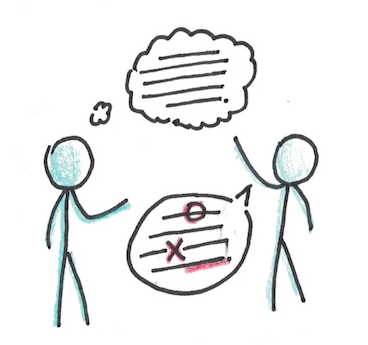
Of course, like all unseen productivity enhancements, this one gets a bad rap because socializing is often not about making productive breakthroughs. Still, setting up time to chat about hard problems with colleagues is rarely a waste.
4. Taking a nap.
Sleep is important. Particularly so in the night when you can enter deeper phases of sleep that enable memory consolidation.
That being so, our lives don’t always permit perfect sleep. Sometimes we’ll find ourselves struggling to stay awake during work, barely making any progress. In those cases, taking a nap should be seen as a productive hack, not wasteful sloth.
A difficulty with taking midday naps is that you oversleep and feel groggy after (not to mention wasting time). Thus, if you’re in a position where napping is an option, you can use the spoon trick. This involves napping with a spoon in your hand raised off the ground. When you slip too deeply into sleep, your muscles will relax, the spoon will drop and the clatter will wake you up.
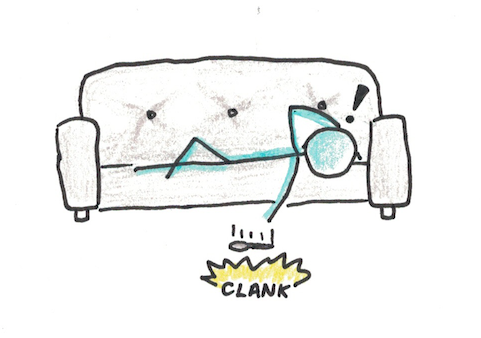
Coffee naps, where you combine a short nap with a pre-nap coffee can also extend your wakefulness. The combination works especially well because adenosine, which makes you feel sleepy, is removed from receptors following a nap, and the freed receptors can then be “plugged” by caffeine, keeping you awake.
5. Say “No” to most opportunities and tasks.
“If you want something done, give it to a busy person.” Or, so the old saying goes. I actually think this saying conceals a hidden meaning. Busy people are those who have the hardest time saying no to those who make demands on their time. That’s why they’re busy.
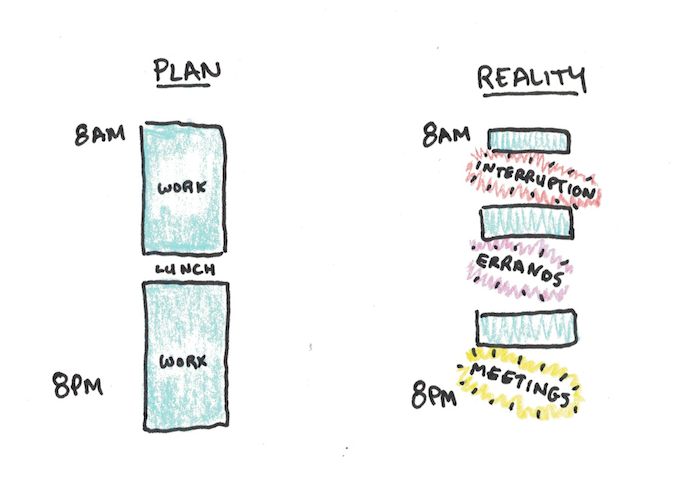
I like the approach Nobel-laureate Richard Feynman took. Physics is hard work. As Feynman admits, “To do high, real good physics work you do need absolutely solid lengths of time.” His solution to avoid people interrupting him with busy-work? Tell them he’s lazy and irresponsible:
“I have invented another myth for myself—that I’m irresponsible. I tell everybody, I don’t do anything. If anybody asks me to be on a committee to take care of admissions, no, I’m irresponsible.”
Productivity doesn’t mean doing the most, but getting the most from what you have done.
6. Taking regular vacations.
“If you love what you do, every day is a vacation.” Nice in theory, lousy in practice. Even if you love your job, taking space from the work you do and having your mind elsewhere is essential to break out of the habit patterns that keep you stuck in your work.
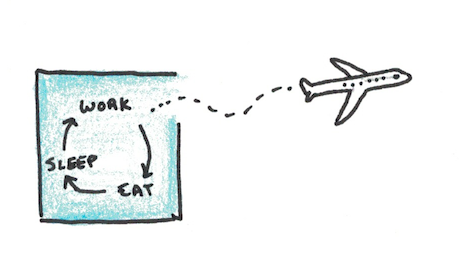
In a discussion on travel between journalist Ezra Klein and economist Tyler Cowen, Klein remarked that he often feels exhausted from travel. Cowen responded that he is able to travel so much, because he treats travel with the seriousness most people apply to work. Instead of expecting it to be leisure, he sees it as an opportunity to expand his knowledge.
I agree with Cowen. Travel is not the only way to broaden your mind, but regularly going somewhere new—physically or mentally—is essential to avoid getting stuck in stale habits. Your routines eventually prevent you from discovering creative new solutions. Seeing and discovering new things is essential to prevent becoming inflexible in your thoughts and actions.
7. Stop doing work you hate.
It’s sometimes the most diligent and productive who end up accomplishing the least. That’s because their tolerance for drudgery prevents them from quitting on work that’s unrewarding.
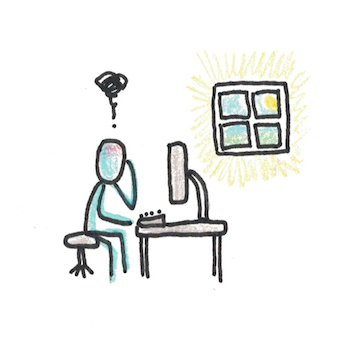
Nearly all people who have accomplished something of value did work that was meaningful and enjoyable to them. No, perhaps not all the time or without effort, but grinding for years at fundamentally unsatisfying work is rarely the recipe for greatness.
To really do work you love, sometimes you need to stop doing work you hate.
These are just my suggestions. Do you have any thoughts on habits or activities that seem lazy but are actually productive? Which would you add to my list? Share your thoughts in the comments!


 I'm a Wall Street Journal bestselling author, podcast host, computer programmer and an avid reader. Since 2006, I've published weekly essays on this website to help people like you learn and think better. My work has been featured in The New York Times, BBC, TEDx, Pocket, Business Insider and more. I don't promise I have all the answers, just a place to start.
I'm a Wall Street Journal bestselling author, podcast host, computer programmer and an avid reader. Since 2006, I've published weekly essays on this website to help people like you learn and think better. My work has been featured in The New York Times, BBC, TEDx, Pocket, Business Insider and more. I don't promise I have all the answers, just a place to start.